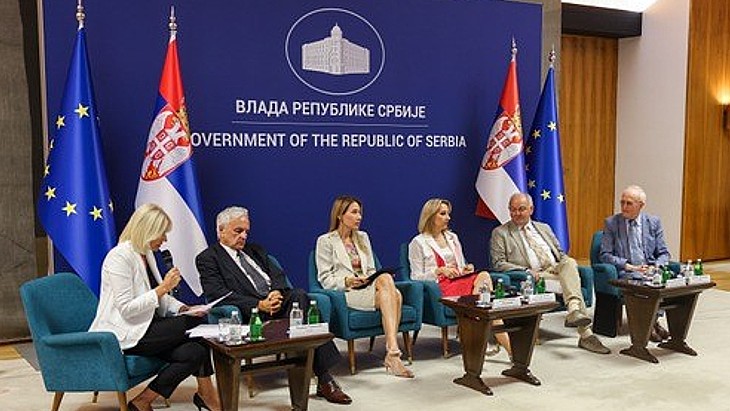Minister Đedović Handanović said that the intention was to gather experts from the country and abroad to examine the possibility of establishing a programme for nuclear energy in Serbia. Her ministry added that "the use of nuclear energy is foreseen in one of the scenarios of the Integrated National Energy and Climate Plan" and said she had noted that the 1989 ban on the construction of new nuclear power plants in the country "does not refer to scientific research and research-development works, mining-geological research works and staff training".
A preliminary study is now planned to provide an analysis of the available technologies and requirements to help inform decisions to be taken "along with the development of educational and scientific programmes, strengthening of capacities in our institutes and creation of a regulatory and institutional framework".
Minister of Environmental Protection, Sandra Dokić, said that 26% of electricity in the European Union was produced by nuclear power and that nuclear power had a key role to play in reaching climate neutrality by 2050, citing the examples of Poland and Romania, which were planning on new nuclear.
The event was attended by Serbian Prime Minister Miloš Vučević, who said the MoU "corrects the mistake" in the 1980s which banned nuclear energy in the country. He said it would be a key development for the sovereignty and independence of the country and said "it is possible to develop nuclear energy while simultaneously protecting the environment and the health of the citizens of Serbia - I believe that this is a great chance for the development of Serbia".
The background
The construction of nuclear power plants, nuclear fuel production plants and plants for used nuclear fuel processing for nuclear power plants has been forbidden since 1989 - in the wake of the Chernobyl accident - predating the breakup of the former Yugoslavia. That ban has stayed in place, although the current government is aiming to reverse it.
In March, Serbia's President Aleksandar Vučić told the Nuclear Energy Summit in Brussels the country was seeking support from other countries in terms of know-how and financing to achieve its aim of getting 1200 MW of capacity from small modular reactors.
The signatories
The MoU was signed by the Vinča Institute of Nuclear Sciences, JP "Nuclear Facilities of Serbia", Directorate for Radiation and Nuclear Safety and Security of Serbia, Serbian Nuclear Society, Institute of Physics, Faculty of Physics, Faculty of Science in Novi Sad, Faculty of Science in Kragujevac, Faculty of Electrical Engineering, Faculty of Mechanical Engineering, Faculty of Technology and Metallurgy from Belgrade, Faculty of Technical Sciences in Novi Sad, Nikola Tesla Institute of Electrical Engineering, Faculty of Physical Chemistry, Faculty of Biology, Faculty of Civil Engineering, Faculty of Economics and Faculty of Medicine. The other ministries to sign it were the Ministry of Science, Technological Development and Innovation, the Ministry of Education, the Ministry of Environmental Protection, the Ministry of Health, as well as the companies Elektroprivreda Srbije and Elektromreza Srbije.





_53504.jpg)

_13505.jpg)
_87975.jpg)






